The concept of the “kafkaesque” is often poorly defined and understood. In the simplest terms, something is kafkaesque if it reflects the themes explored in Franz Kafka’s fiction; namely, those of bureaucracy and the confusing—often nonsensical—rules, behaviours, and mannerisms of our modern existence. These themes criticise law, social niceties, and capitalism, amongst other things.

Stories to Make Franz Kafka Proud
With this in mind, a kafkaesque story is often one which examines and criticises normativity, what is typically expected of us both professionally and socially, and the dynamics of behaviour in our day-to-day lives. They are stories that satirise work, etiquette, and even family dynamics. This is what you’ll find here, in these novels.
The following novels all have something of the kafkaesque to them. Some might be comedies, others horror. Some are straightforward; others are surreal and feverish in their presentation. There is a real diversity here, but all of these books wear their kafkaesque themes proudly and in novel, original ways.
The Unconsoled by Kazuo Ishiguro
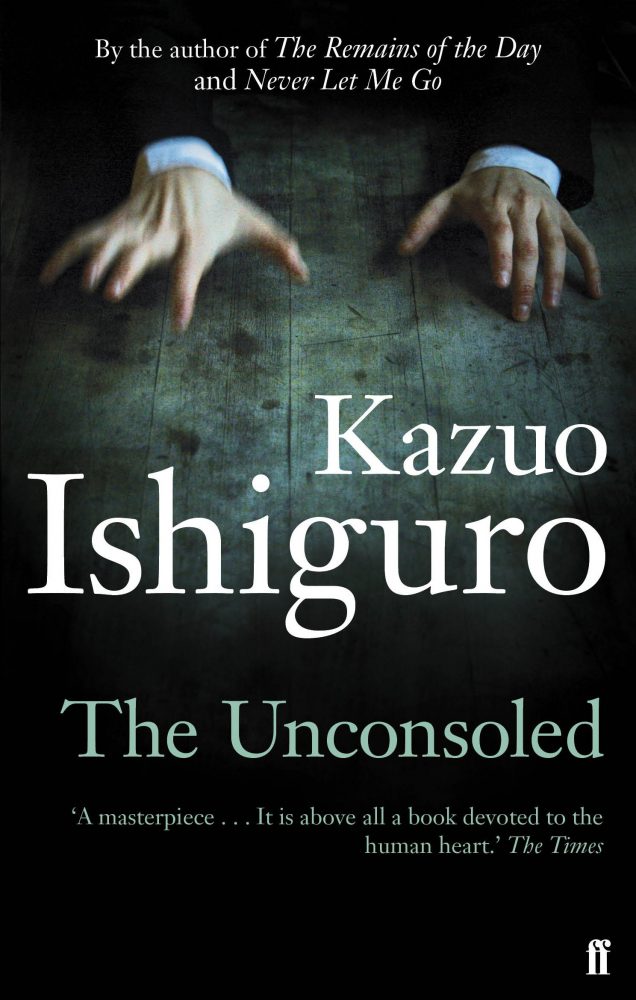
The Unconsoled is the longest novel by Nobel Prize-winning author Kazuo Ishiguro, and calling the book a “fever dream” feels almost unavoidable. The Unconsoled is a masterful work of kafkaesque surrealism which follows concert pianist Ryder, who has just arrived in an unnamed city to play a concert, and from the very moment he enters his hotel, the world becomes an unknowable place.
In the novel’s first chapter, Ryder meets Gustav, a bellhop who begins a pages-long monologue about the nature of his work. From here, Ryder heads to a cinema to watch a late-night viewing of 2001: A Space Odyssey while two men play chess. The next day, he meets with a woman who talks to Ryder about her child, and Ryder steadily realises this is his wife and the child is also his own. And so the rabbit hole continues to deepen.
The Unconsoled is a work of impossible strangeness that owes so much to Franz Kafka in its dreamlike quality, its circular and disjointed narrative, and the ways in which its protagonist is lost and disorientated at every turn, unable to obtain simple answers to simple questions.
The Vegetarian by Han Kang
Translated from the Korean by Deborah Smith
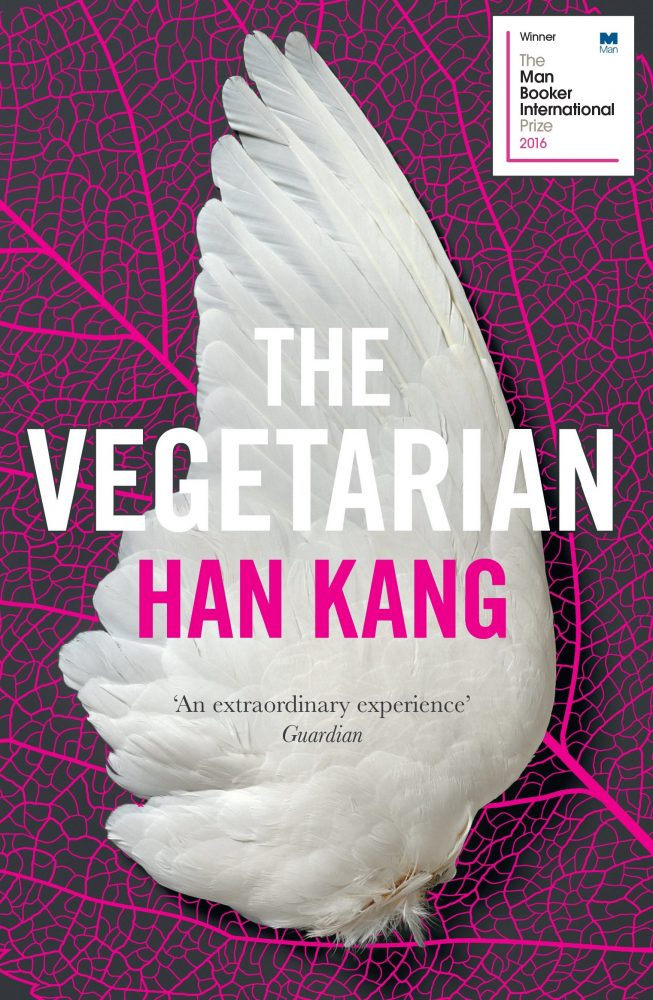
One of the most successful and beloved Korean novels in translation, Han Kang’s The Vegetarian is separated into three parts and begins with Yeong-hye, a woman whose life is upturned in frightening and unimaginable ways after she makes the decision to stop eating meat. Each story follows a member of her family who is shocked by her decision and begins to treat her differently.
Our first narrator, Yeong-hye’s husband, explains that he married her because she was as ordinary as he is, and that she would guarantee a simple, peaceful, well-behaved life. But when she throws away all the meat in their fridge and goes vegetarian, he is disturbed and shocked. He attempts to persuade her to change back, and even invites her father around, who attempts to physically force her to eat meat.
The Vegetarian explores the concept of conformity, and what happens when someone—especially a woman—makes even a small, autonomous decision to change something in a novel and unpopular way. For many, this novel is shocking and disturbing, and it’s one that Kafka would surely have adored.
Authority by Jeff Vandermeer

Authority, the second book in sci-fi author Jeff Vandermeer’s Southern Reach series, is set in the Southern Reach itself—a strange agency which exists to monitor a mysterious stretch of coastline called Area X, which exists inside a gradually expanding bubble. Area X affects any human who enters in dangerous and unpredictable ways (as were explored in the first novel, Annihilation). And in this novel, our protagonist is desperately trying to understand Area X.
That protagonist is John Rodriguez, the Southern Reach’s new director. He prefers, ironically, to go by the name Control, and was given this role by his mother. Periodically, Control reports his findings to someone called The Voice over the phone, and he spends much of his time interviewing people who have returned from expeditions to Area X, as well as searching through reports, findings, logs, photos, and videos.
At times, Authority feels like a dizzyingly circular novel, as Control makes little progress; he is waylaid, distracted, manipulated, and confused at every turn. He wants to do his job but the very agency itself seems to be guiding his hand or stopping him entirely. Control is trapped in an unclear role in a kafkaesque system with no clear direction, and all the while he has a mysterious, possibly alien, and definitely dangerous phenomenon to solve.
City of Ash and Red by Hye-young Pyun
Translated from the Korean by Sora Kim-Russell
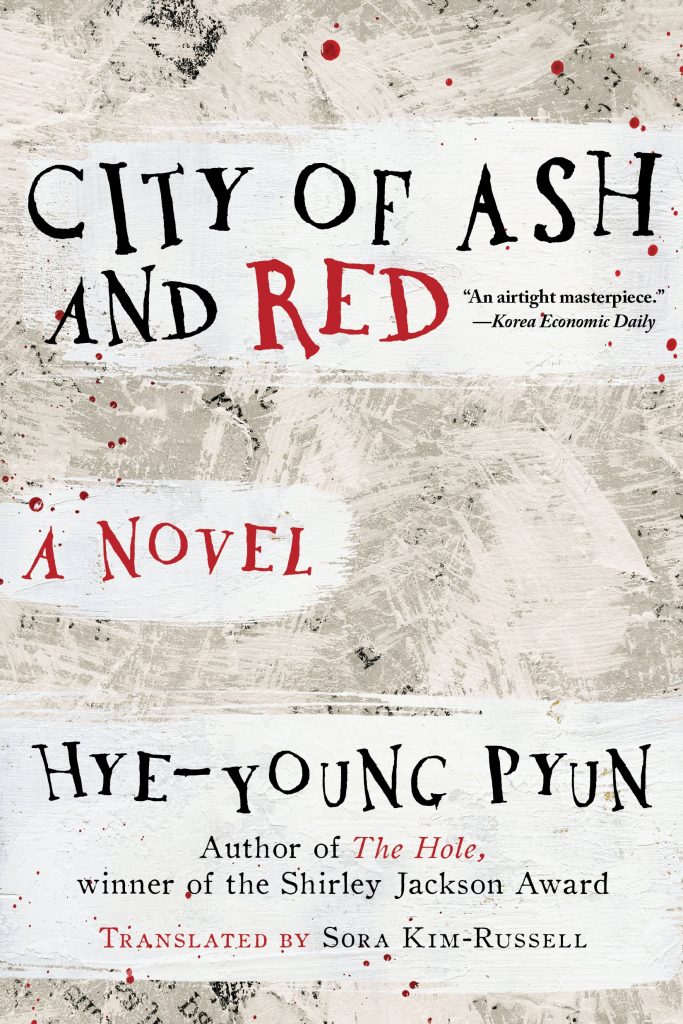
This phenomenal Korean novel is perhaps the truest successor to Kafka’s works you’ll ever read. The book’s protagonist is a nameless rat catcher who has been sent by his company to work in a new city. That city has been devastated by sickness and its streets are overflowing with garbage.
Upon arriving, our protagonist is unable to find his prime company contact, and nobody is able to help. Shortly after, his luggage is lost, he is told to quarantine, and he soon gets a call from his friend who breaks the news to him that this friend has married his ex-wife. Not long after, the ex-wife is found dead in our protagonist’s apartment, and he is natural the murder’s prime suspect.
As is the case in Kafka’s The Trial and Ishiguro’s The Unconsoled, Pyun’s protagonist wishes to find answers, to straighten up his understanding, and to explain himself. But at every turn, nobody will listen to him. In fact, they display more than just ignorance; they are indifferent to his problems. This is a Korean kafkaesque masterpiece.
Several People Are Typing by Calvin Kasulke
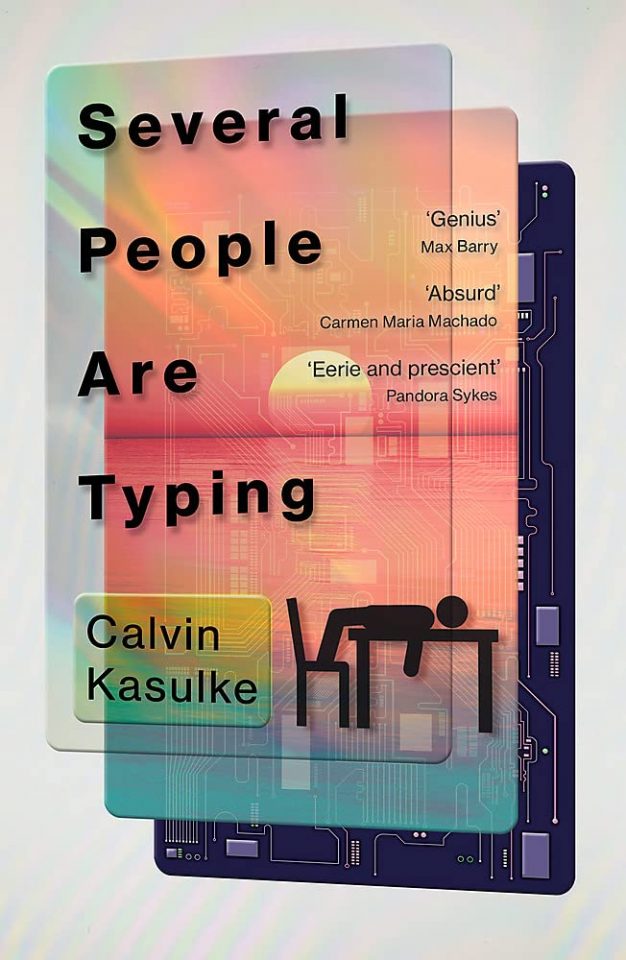
Several People Are Typing is a brilliantly strange and inventive work of sci-fi horror comedy with its roots deep in the kafkaesque philosophy. The entire book is presented as a series of conversations via Slack. Our protagonist, Gerald, works at a company which uses Slack for its work-related chats, and Gerald begins one day by informing his team that he is trapped inside Slack. His consciousness has somehow been uploaded into the app itself.
Naturally, nobody believes Gerald. He gets his colleagues’ attention repeatedly, in various work and casual Slack channels, asks them for help, and they laugh it off as a prank. Eventually, Gerald asks a colleague who lives close-by to go and see for himself—to go and check on Gerald’s body. And all the while, we get to know the various people of Gerald’s office as they express themselves through Slack.
In kafkaesque fashion, Gerald is expected to continue his work regardless. And he is even praised for a rise in productivity because he can do nothing but work, since he is trapped in his company’s Slack account. He sends messages and files reports for lack of anything else to do. Nobody takes his situation seriously but they all praise his increase in productivity.
Convenience Store Woman by Sayaka Murata
Translated from the Japanese by Ginny Tapley Takemori

Sayaka Murata is one of the finest Japanese authors writing today, and Convenience Store Woman put her on the map. This novel follows an autistic-coded protagonist who has worked at the same convenience store for almost twenty years, never asking for anything else out of life. But that doesn’t sit right with her colleagues or her family, who often ask her when she will get a career and a husband and a mortgage—all the things we are expected to do.
But Keiko is content. The world is a strange and confusing place; she has never been able to fully understand how people behave or the unwritten rules of society that they dutifully follow. She doesn’t judge others and she is exhausted by their judgement of her. The modern world expects certain performances from us (college, career, marriage, family etc) and Keiko has found a way to survive outside of all that.
And for this, Keiko is endlessly worried over and looked at with suspicion. When in reality, as we learn from select flashbacks, she has always struggled to navigate everyday life. Convenience Store Woman echoes Kafka’s criticism of bureaucratic rule-following and the nonsense laws of life, bringing them into the twenty-first century Japanese society.
Managing and Other Lies by Willow Heath
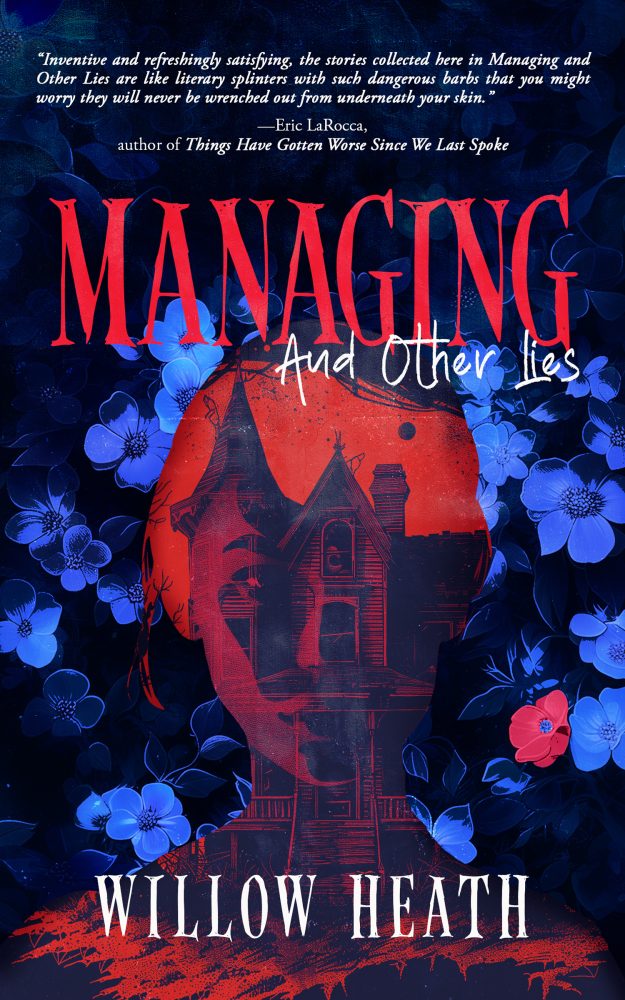
Managing and Other Lies is a collection of queer horror stories, and its titular tale Managing is a deeply kafkaesque gothic tale set in a labyrinthine house at the edge of an English village. Every day, our nameless protagonist—who has been hired to clean and tidy this strange house—writes about their progress in a journal. As the days go on, they soon learn that they aren’t as alone as they first thought.
A man has barged his way into the house; he refuses to explain his presence and insists that our protagonist is doing a terrible job tending to the garden. Soon after, our protagonist meets a woman who lives in a room upstairs. She seduces our protagonist and offers them the happiness they seek in exchange for various small sacrifices. These sacrifices are bits and pieces of their own body; beginning with a skin tag, then a fingernail, and on it goes.
Our nameless protagonist is battling with dysphoria, berated by the misogynistic and bullish man, and encouraged to make painful sacrifices by a woman who seduces and gaslights them. In order to be happy with who they are, they are forced to fight, perform, and put themself through pain and discomfort, all because the men and women of society expect them to. Being trans is wonderful; it is only the expectations of society that makes it hard.
Buy a copy of Managing and Other Lies here!
The Factory by Hiroko Oyamada
Translated from the Japanese by David Boyd

In one of the most on-the-nose kafkaesque novels ever written, a factory spreads itself impossibly large, and we follow three protagonists who work there. The factory makes all kinds of consumable products, and also behaves like a town with places to live, eat, relax, and play.
In the world of The Factory, there is no separation of work and life; they are now one and the same. People live, work, and die at and for the factory. Nobody can recognise where work ends and every other aspect of life begins. All anyone knows is the factory.
In this novel, Japanese author Hiroko Oyamada takes Kafka’s themes and blows them up impossibly large, painting them on a billboard for every reader to see.
The Ruined Map by Kobo Abe
Translated from the Japanese by E. Dale Saunders

Kobo Abe could accurately be called the Kafka of Japan. Many Japanese authors explore the kafkaesque in their writing, but none with such dedication and surrealism as Kobo Abe. And while many of his books are worthwhile reads, The Ruined Map is the perfect introduction to his works, due to its more clear and direct narrative.
The Ruined Map begins with a detective who has been hired by a woman to find her missing husband. What at first seems like a simple detective story gradually gives way to something more surreal and dreamlike, in a very similar vein to David Lynch’s Twin Peaks. The detectives obsession over minor details that lead nowhere, and the circular, empty answers given by his interviewees (the wife included), scream Kafka.
This is a book that asks us if we can ever truly know one another. The titular ruined map is both the city of Tokyo and the mental map we each have, populated by the people we meet and come to know. This is a novel fantastically reminiscent of Kafka’s stories.
Our Wives Under the Sea by Julia Armfield

In Julia Armfield’s queer gothic horror, we follow a couple whose lives have been irreversibly changed by a mission to the bottom of the sea that went horribly wrong. Leah’s trip should have been a short one, but something went wrong and she was stuck down there for a long time. As we follow her story, we learn what she encountered and how she was changed by it.
But the bulk of the narrative is her wife Miri’s story, which takes places after Leah has returned. Leah is no longer communicating properly, and enjoys little more than sitting in a full bathtub day in, day out. Leah gradually grows sick as her skin falls away and she vomits salty water. Miri is powerless to help her, and doesn’t understand how something like this could have happened.
Miri grieves the loss of her wife and her marriage, all while her wife is still technically present. She has so many questions but cannot get answers. Our Wives Under the Sea is a different kind of kafkaesque, examining the bureaucracy of our social and romantic lives, as well as that of loss itself.



